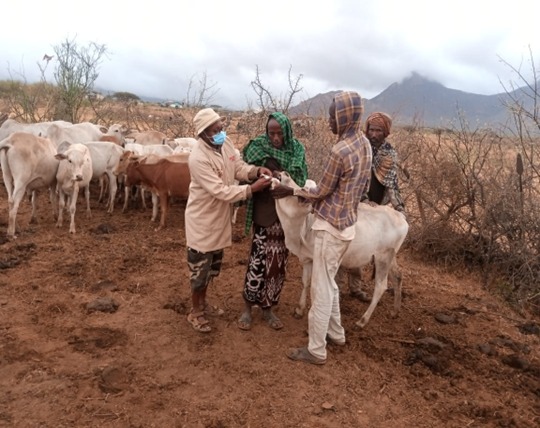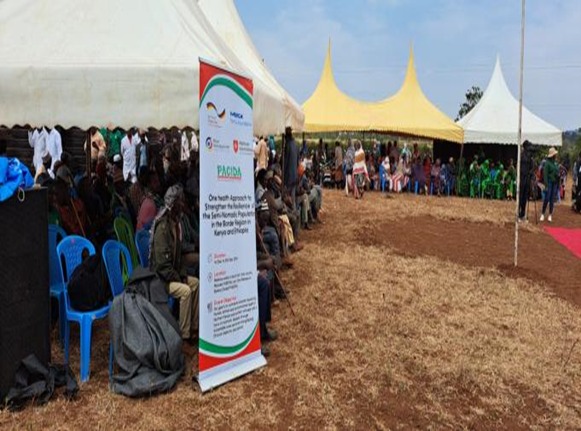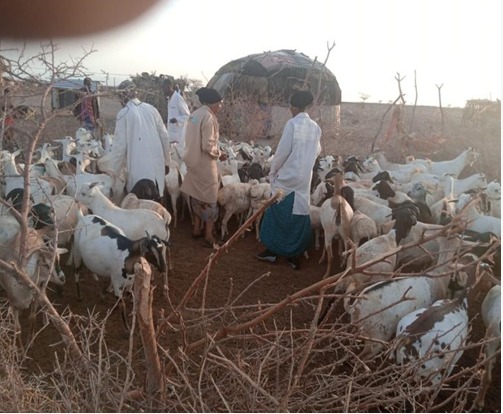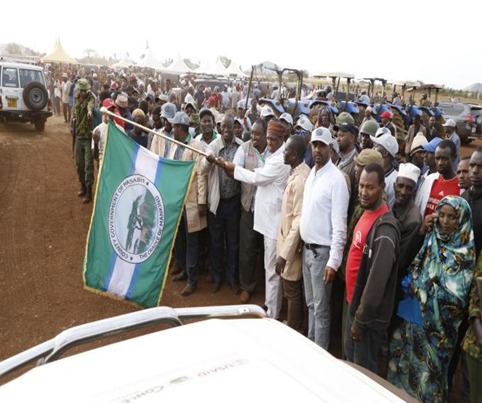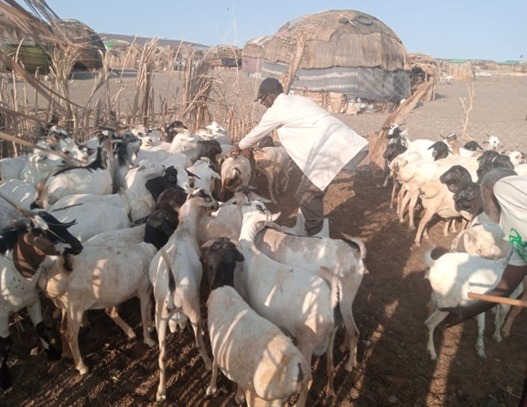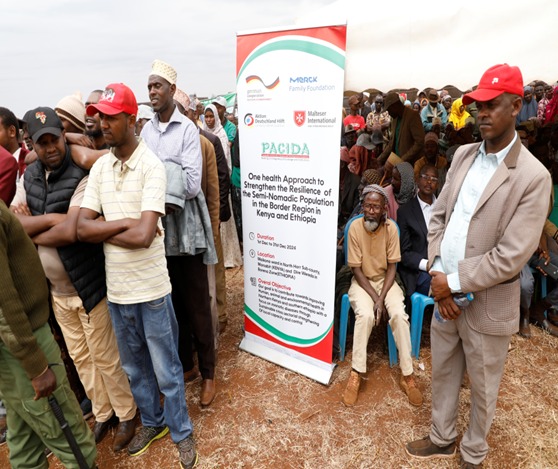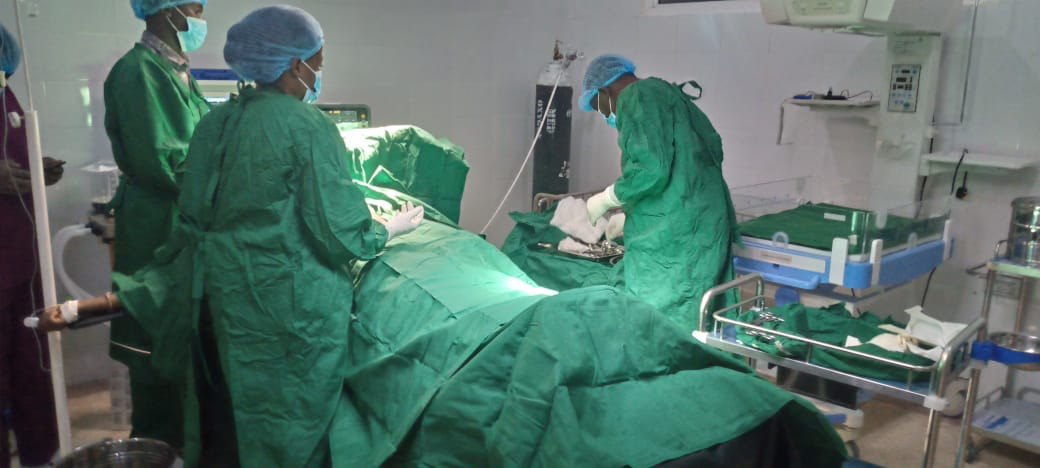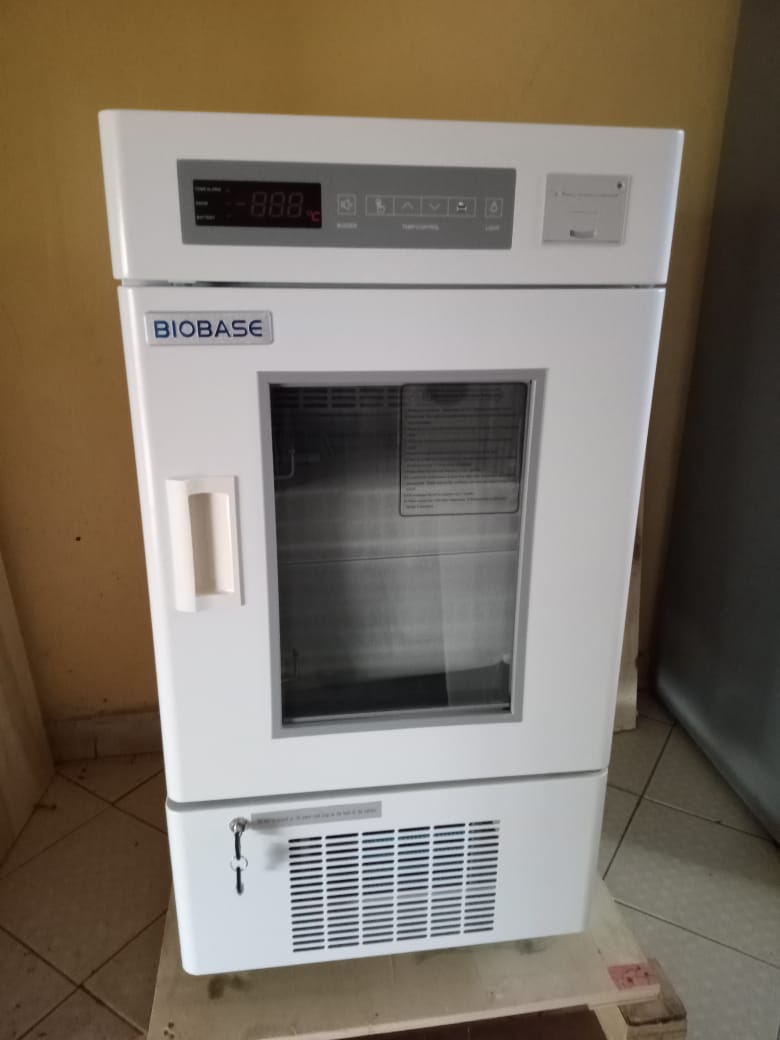The Situation
In Marsabit County, the livestock sector sustains about 90% of the pastoral livelihood which contributes 10% to Kenya’s Gross Domestic Product (GDP) consequently rudimenting animal health campaigns as an integral part of the progressive transdisciplinary, multi-sectoral One Health approach. Livestock health is a prerequisite for nomadic health, economic development, food security, food quality, and poverty reduction while mitigating climate change and biodiversity loss. Reducing the burden of animal diseases, including zoonoses, and appropriately managing emerging diseases, pandemic threats, and antimicrobial and antiparasitic resistance, are considered priorities to achieve sustainable livestock systems.
The Project/ Programme
The Goal of our project is to contribute towards improving human, animal and environmental health in Northern Kenya and Southern Ethiopia with a focus on zoonotic diseases through sustainable cross sectorial strengthening of local capacity and control.
Our objectives include:
- Strengthened and established One Health system and structure that can respond to zoonoses and epidemics in a coordinated and appropriate manner.
- Improved Human, Livestock and environmental health through control and prevention of zoonotic diseases increased food security and applied WASH practices.
- Integration of One health research components and establishment of two sustainable model farms for training research and best practice in the regions.
The current intervention/ action
Between 21st-30th June 2023, Malteser International through Pastoralists Community Initiative and Development Assistance (PACIDA) conducted mass livestock vaccination and deworming campaign in collaboration with Marsabit County Department of Agriculture, Livestock and Fisheries in Turbi, Shur and Forolle locations . These exercises were conducted in villages and livestock settlements by animal health/ veterinary staff. The exercise reached 21,986 shoats (9,745 sheep, 12,241 goats) belonging to 313 farmers were vaccinated against Peste des petite Ruminant (PPR). Further, 31,513 heads of livestock (12,923 sheep, 14,274 goats, 1,379 cattle, and 2,937 camels) were dewormed. Blood samples were collected from 10 camels, revealing parasitic infections and the cases were put under further management .

